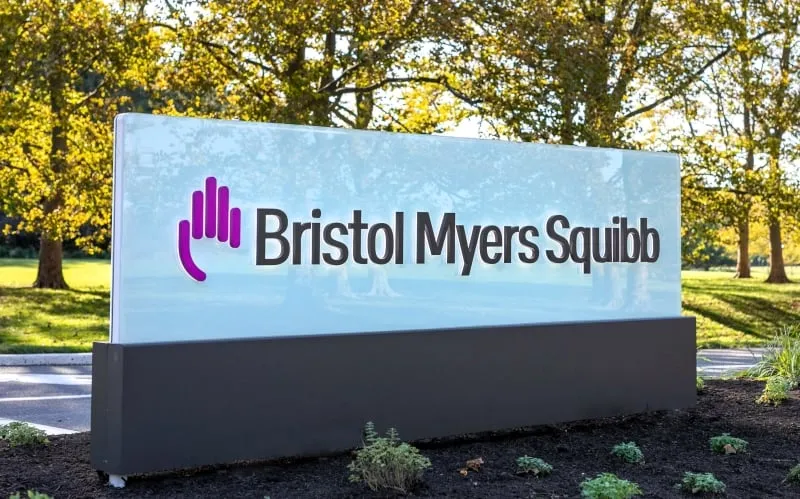
Bristol Myers Squibb Showcases Expansive Oncology Portfolio and Groundbreaking Clinical Research at ASCO 2025 Annual Meeting
Bristol Myers Squibb is set to make a significant impact at the 2025 American Society of Clinical Oncology (ASCO®) Annual Meeting, which will be held from May 30 to June 3 in Chicago, Illinois. The global biopharmaceutical giant will present data from over 80 studies—both company-sponsored and collaborative—highlighting its comprehensive oncology pipeline and reinforcing its commitment to advancing cancer care across more than 20 tumor types.
This year’s ASCO meeting marks a pivotal opportunity for Bristol Myers Squibb (BMS) to demonstrate the breadth and depth of its scientific research platform, which has been evolving through a deliberate strategy to address high unmet needs in oncology. The data presented will span investigational and approved therapies, emphasizing both targeted approaches and immunotherapies that are shaping the future of cancer treatment.
A Vision of Earlier Intervention and Long-Term Survival
One of the major themes of BMS’s ASCO 2025 presence is the advancement of therapies into earlier stages of disease, where there is a growing body of evidence suggesting that such interventions can lead to improved long-term outcomes. Several studies highlight this paradigm shift:
- NIVOPOSTOP (GORTEC 2018-01) Phase 3 Study: In what will be one of the most prominent presentations of the conference, the plenary session will feature results from this independent study evaluating the role of adjuvant nivolumab in combination with radiochemotherapy for patients with resected head and neck squamous cell carcinoma (HNSCC) at high risk of relapse. This research could reshape post-surgical treatment standards for HNSCC patients by demonstrating the survival benefit of immunotherapy earlier in the treatment course.
- CheckMate -816 Five-Year Overall Survival Update: This late-breaking abstract will provide new insights from the long-term follow-up of the CheckMate -816 trial, which evaluated Opdivo® (nivolumab) combined with chemotherapy as a neoadjuvant regimen in patients with resectable non-small cell lung cancer (NSCLC). The study, which originally established a path forward for pre-surgical immunotherapy, now offers critical data on five-year overall survival (OS)—a key measure of sustained benefit.
- CheckMate -77T Phase 3 Update: Also presented as a late-breaking abstract, new data from this study will include updated survival outcomes and an exploratory biomarker analysis in patients undergoing perioperative treatment with neoadjuvant Opdivo plus chemotherapy, followed by surgery and single-agent Opdivo as adjuvant therapy. The results could help further personalize therapy for patients with resectable NSCLC.
- CheckMate -577 Five-Year Results: Continuing the theme of durability, Bristol Myers Squibb will also present five-year OS data from this study evaluating adjuvant Opdivo in patients with esophageal or gastroesophageal junction cancer who have residual disease following neoadjuvant chemoradiotherapy. These findings underscore the long-term potential of immunotherapy in a challenging tumor type with traditionally limited options.
- COMMANDS Phase 3 Study – First OS Disclosure: For patients with myelodysplastic syndromes (MDS), the company will unveil overall survival data and updated duration of response from this pivotal trial comparing Reblozyl® (luspatercept-aamt) with epoetin alfa in ESA-naive patients. The COMMANDS study builds on previous evidence showing Reblozyl’s superiority in achieving transfusion independence and may now position it as a standard of care for frontline MDS management.
Advancing the Pipeline: From First-in-Class Therapies to Breakthrough Innovations
Beyond its marketed assets, Bristol Myers Squibb continues to push the boundaries of oncology research with a diverse and differentiated pipeline. This year’s ASCO presentations include promising new data on several investigational agents targeting novel biological pathways.
- BMS-986504 – PRMT5 Inhibitor in MTAP-Deleted Tumors: In one of the most exciting first-in-human datasets, the Phase 1/2 CA240-0007 study investigates a novel MTA-cooperative PRMT5 inhibitor in patients with MTAP-deleted advanced solid tumors. These cancers are notoriously difficult to treat, and the data presented will offer early evidence on the safety, tolerability, and potential efficacy of a drug that could become a first-in-class precision therapy.
- KRYSTAL-7 – Adagrasib Plus Pembrolizumab in KRASG12C-Mutated NSCLC: The KRYSTAL-7 trial evaluates the combination of KRAZATI® (adagrasib), a KRASG12C inhibitor, with the PD-1 inhibitor pembrolizumab in the frontline setting for NSCLC patients regardless of PD-L1 expression. ASCO attendees will get a look at data on OS, progression-free survival (PFS), and overall response rate (ORR), all of which could support expanded use of adagrasib as a foundational element in KRAS-mutated lung cancer therapy.
- Bispecific Antibody-Drug Conjugates – iza-bren (BL-B01D1): In two Phase 1 studies, BMS and partner BioLineRx are exploring the novel EGFR x HER3 bispecific antibody-drug conjugate iza-bren in patients with small cell lung cancer (SCLC) and NSCLC with non-classical driver mutations. These early studies are testing the waters in populations with significant therapeutic gaps, and the initial safety and efficacy data could inform the design of subsequent trials.
Cell Therapy: Enhancing Precision and Safety in a Transformative Modality
Bristol Myers Squibb continues to be a leader in the field of cell therapy, particularly with its CAR T cell therapies Breyanzi® (lisocabtagene maraleucel) and arlocabtagene autoleucel (arlo-cel), both of which will be featured in new analyses.

- Real-World Safety Insights for Breyanzi: An extensive dataset covering over 1,500 patients treated with Breyanzi across both clinical trials and real-world settings provides new granularity into the timing and resolution of cytokine release syndrome (CRS) and immune effector cell-associated neurotoxicity syndrome (ICANS). These findings will help inform improved monitoring and management strategies for patients undergoing CAR T treatment for B-cell non-Hodgkin lymphoma.
- Immune Preservation with arlo-cel in Multiple Myeloma: A new biomarker analysis explores the preservation of normal plasma cells following treatment with arlo-cel in patients with relapsed/refractory multiple myeloma. The results suggest that targeting GPRC5D may allow for effective tumor eradication while sparing key components of the humoral immune system, a significant consideration for long-term patient outcomes.
A Future-Ready Oncology Strategy
“As we present our latest findings at ASCO 2025, Bristol Myers Squibb continues to demonstrate leadership in shaping the future of cancer treatment,” said Dr. Samit Hirawat, executive vice president, chief medical officer, and head of development at BMS. “From first-in-class molecules to long-term survival data with our established therapies, we are showcasing the power of our research engine to drive transformative advances for patients.”
With a portfolio that spans immuno-oncology, targeted therapies, and next-generation modalities like cell therapy and bispecifics, BMS is leveraging a multi-faceted approach to combat cancer at every stage. The company’s ASCO 2025 presentations not only affirm its role as a scientific innovator but also reinforce its commitment to delivering new hope and better outcomes for patients around the world.
As the oncology landscape continues to evolve, Bristol Myers Squibb’s robust showing at ASCO 2025 signals its intention to remain at the forefront—turning breakthrough science into real-world survival for patients facing some of the toughest cancer diagnoses.





